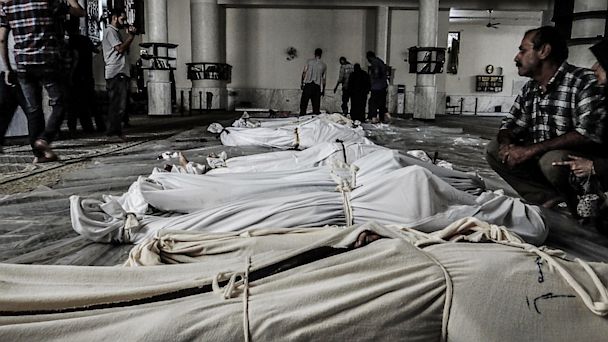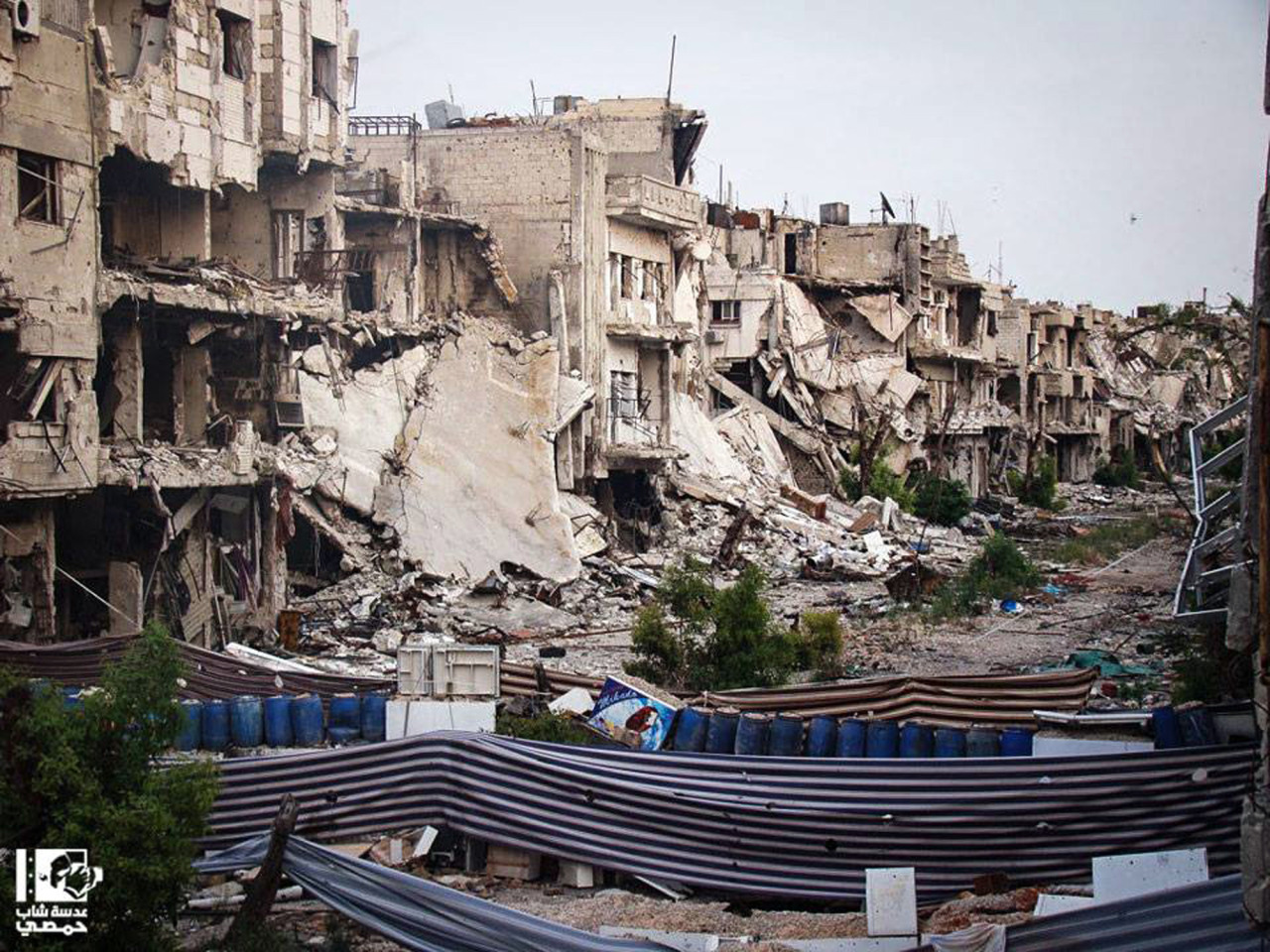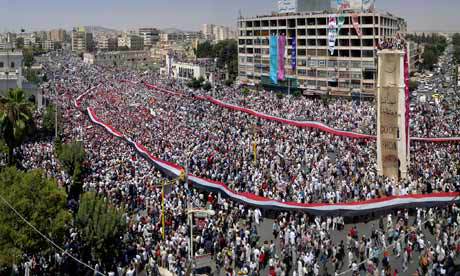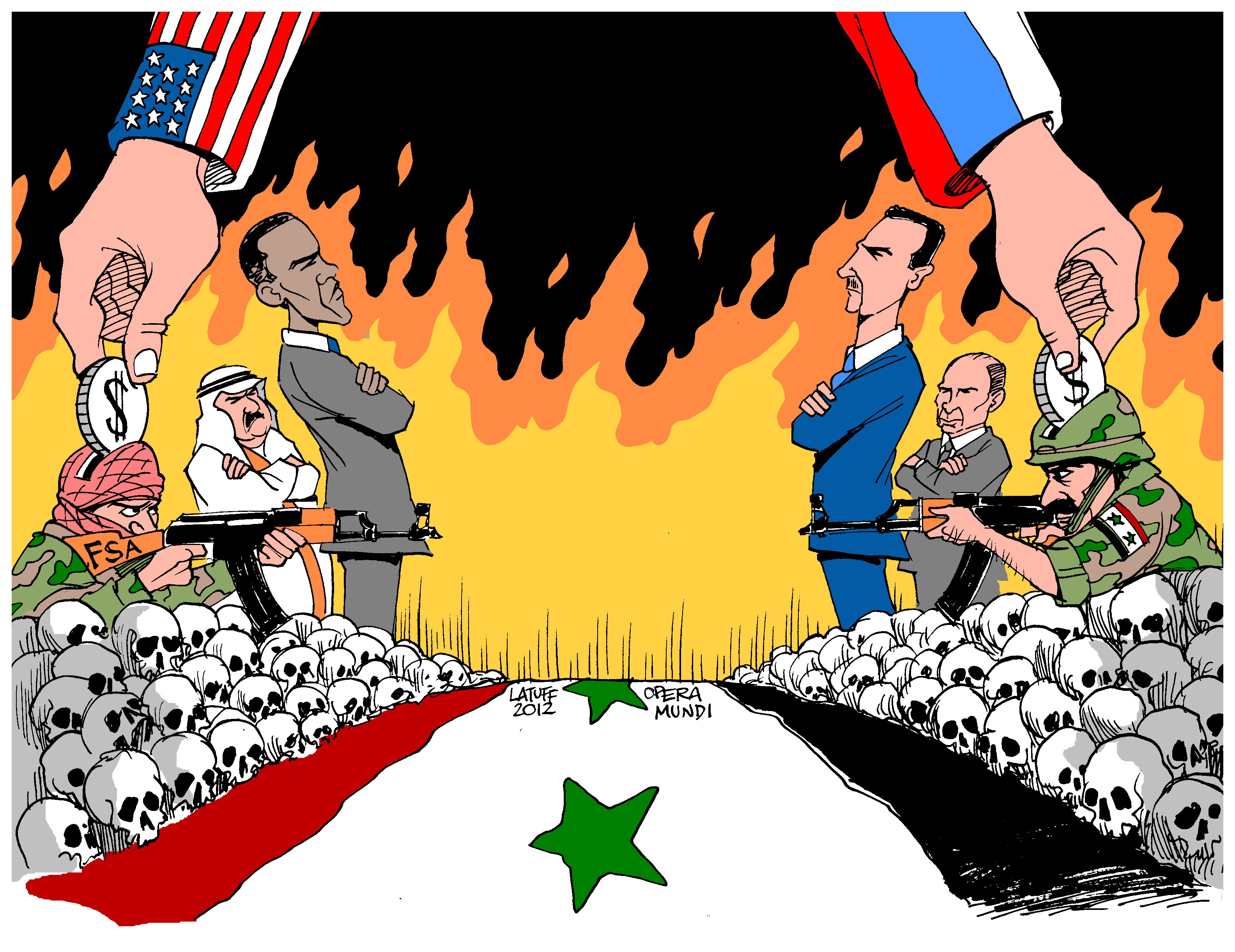
Victims of the alleged August 21 chemical weapons attack.

Victims of the alleged August 21 chemical weapons attack.
Havana, August 28, 2013 -- The Ministry of Foreign Affairs of the Republic of Cuba issued the following statement regarding the growing threats against Syria. The recen
Below are a number of statements (or news reports of statements) by European left parties on the crisis in Syria.

A street in Homs shows the extent of damage by government forces dur

Non-violent Syrian demonstrators, July 2011. Photo: AP.
By Thomas Harrison and Joanne Landy

Aftermath of the Assad regime's shelling of the city of Homs.

Cartoon by Carlos Latuff.
Click HERE for more by Tariq Ali. For more on Syria, click HERE.
By Tariq Ali
September 16, 2012 -- CounterPunch, via Green Left Weekly -- Angered by the non-stop, one-sided propaganda on CNN and BBC World, usually a prelude to NATO bombing campaigns (including the six-month onslaught on Libya, the casualties of which are still hidden from the public) or direct occupations, I was asked to explain my views on RTV [Russia Today].
I did so, denouncing the promotion of the Syrian National Council by Western media networks and pointing out that some of the armed-struggle opposition were perfectly capable of carrying out their own massacres and blaming them on the regime.
There were doubts at the time about who was responsible for the massacre in Houla in May. No longer. It’s now clear that the regime was responsible.

Prison writings: The PKK and the Kurdish Question in the 21st Century

[Click HERE for more analysis of the situation in Syria.]
By Tony Iltis
August 12, 2012 -- Green Left Weekly -- The 50-year rule of the Ba’ath Party in Syria looks to be effectively over. In the past month armed clashes have spread to the Syrian capital, Damascus, and the largest city, Aleppo. Armed opposition forces have taken control of several border points. On August 6, Prime Minister Riad Hijab defected to the opposition.
The regime of Bashar al-Assad — who inherited the presidency in 2000 from his father, Hafez al-Assad, who seized power in a 1970 military coup — no longer controls the country.
However, an end to the violence, which has claimed 20,000 lives since the uprising that broke out in March last year against Assad, looks far away. So, too, does the realisation of the uprising’s original aims: democratic rights and economic justice.
The regime has indicated it will cling to whatever power it can with counter-offensives in Damascus and Aleppo. Western demands that Assad face an international war crimes trial, and the nastier fate of Libyan dictator Muammar Gaddafi who was brutally murdered after his overthrow and capture by NATO-led forces, has given Assad no incentive to compromise.